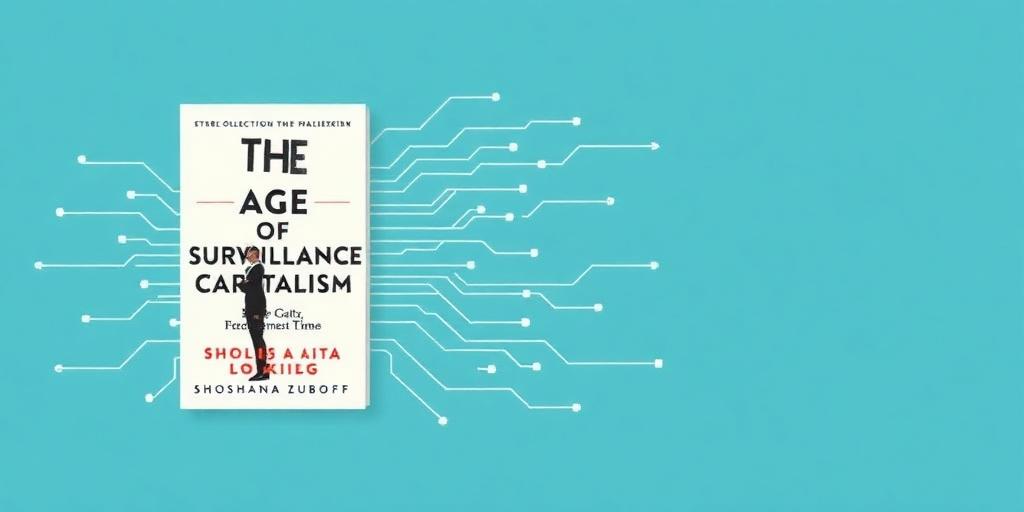Shoshana Zuboff's "The Age of Surveillance Capitalism": A Summary for Everyone
Shoshana Zuboff's "The Age of Surveillance Capitalism" is a seminal work that explores the evolution of a new economic order where personal data is harvested on a massive scale for profit. This summary aims to provide a clear and concise overview of Zuboff's key arguments, making them accessible to a broad audience.
What is Surveillance Capitalism?
Zuboff defines surveillance capitalism as a "distinctive form of information capitalism" that is "parasitic and self-referential." Unlike traditional capitalism, which relies on the production and sale of goods or services, surveillance capitalism centers on the commodification of human experience. Companies collect vast amounts of data about individuals' behavior, often without their explicit consent or awareness, and use this data to predict and modify future behavior.
Key Concepts
- Data Extraction: Surveillance capitalists extract data from every facet of our lives, including our online activity, social interactions, and even our physical movements. This data is often gathered through platforms and devices we use daily, such as search engines, social media, and smartphones.
- Prediction Products: The extracted data is analyzed using algorithms and machine learning techniques to create "prediction products." These products are then sold to businesses seeking to anticipate and influence consumer behavior.
- Instrumentarian Power: Surveillance capitalism seeks to exert "instrumentarian power," which involves shaping and controlling human behavior on a large scale. This power is exercised through the manipulation of our online environments, personalized advertising, and the subtle nudges that guide our choices.
- The Behavioral Future's Market: Zuboff argues that surveillance capitalists operate in a "behavioral future's market," where predictions about our future actions are bought and sold. This market incentivizes the continuous monitoring and manipulation of individuals to ensure the accuracy and profitability of these predictions.
The Impact on Society
Zuboff warns that surveillance capitalism poses significant threats to individual autonomy, democratic governance, and social cohesion. The erosion of privacy, the manipulation of behavior, and the concentration of power in the hands of a few tech giants undermine our ability to make free and informed choices. The creation of echo chambers and filter bubbles exacerbates social divisions and polarization.
Examples of Surveillance Capitalism in Action
- Google: As one of the pioneers of surveillance capitalism, Google collects vast amounts of data through its search engine, email service, and other online tools. This data is used to target advertising and personalize search results.
- Facebook: Facebook harvests data from its users' social interactions, preferences, and activities to create detailed profiles. This data is used to target advertising and influence users' behavior.
- Amazon: Amazon tracks users' purchasing habits, browsing history, and even their physical movements through its Echo devices and Ring doorbells. This data is used to personalize recommendations and target advertising.
What Can Be Done?
Zuboff calls for collective action to resist surveillance capitalism and reclaim control over our data and our lives. This includes:
- Regulation: Governments need to enact strong privacy laws and regulations to limit the collection and use of personal data.
- Education: Individuals need to become more aware of the practices of surveillance capitalism and the risks they pose.
- Resistance: We need to resist the normalization of surveillance and demand greater transparency and accountability from tech companies.
- Alternatives: Supporting and developing alternative platforms and technologies that respect privacy and prioritize user autonomy.
Conclusion
"The Age of Surveillance Capitalism" is a wake-up call about the dangers of unchecked data collection and the erosion of individual autonomy. By understanding the dynamics of surveillance capitalism, we can begin to take steps to protect our privacy, reclaim our freedom, and build a more just and equitable society.









